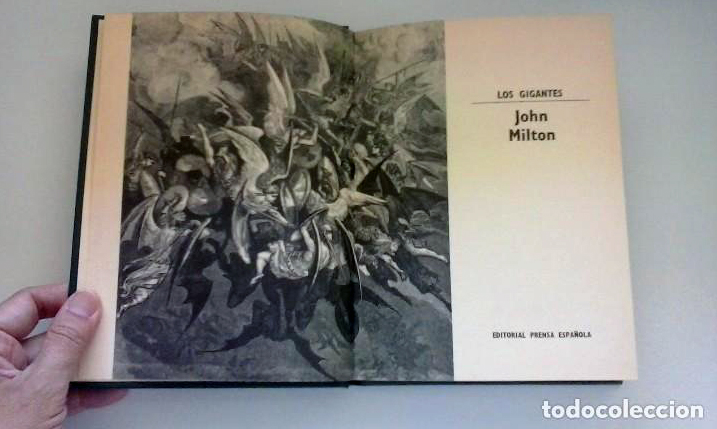I’ve been boxing up the library my father left behind to send to the cellar of the school he founded decades ago. Incidentally, the short article I wrote last week about John Milton was written thanks to the book I took out from that library (remembering that I had read it, I appropriated it and it will no longer go to the cellar).
Today I was going to post a new entry quoting from Simms’ book. But as I went for a walk to warm up my body this winter morning I decided I’d better talk a bit about a new decision I’ve made: to read old books. Looking through the splendid hardback edition of the book on Milton published in Madrid in 1971, I felt it was a crime to alienate myself so much on the internet instead of using more traditional avenues of information.
For example, in the Tucker interview with Putin that I was talking about yesterday, I omitted that the American’s interruptions, when Putin was telling him the history of his people from the 9th century to the present day, were interruptions caused by someone living in the superficiality of the moment. To have a profound knowledge of something, Aristotle said, it is necessary to know the past. And the same can be said of a person’s biography. The symbol of pop culture that I appropriated in the featured post is precisely that of a fictional character who spends his time looking at the historical and biographical past of Westeros to understand his own culture better and better.
This, of course, is of necessity lost in forums where writers merely comment on the news of the present without proper historical background. Even as much as Andrew Anglin admires Putin, he didn’t understand why he summarised Russian history in less than half an hour (see the repost of Anglin’s article in The Unz Review). As far as my site is concerned, blaming Christianity for the anti-white psychosis of our day implies a deep knowledge of Western history. I don’t mean a normie reading of history, but a reading that could be gleaned from William Pierce’s historical book that I linked yesterday in the comments section (a POV which could also be gleaned from some of Hitler’s after-dinner talks).
In other words, it is a crime to become addicted to the internet when the thing to do is to dust off our parents’ and grandparents’ old books and read (or re-read) them. On Saturday last week, we hired two workers to help me dust off, one by one, the books from my father’s library. The depth of understanding the Aryan decline of someone who knows the past from books, by which I mean not just history books but the literature of the people—literature is the soul of a people!—is so fundamental that even Tucker, after the interview, confessed from his hotel room that it would take him a year to assimilate the historical information Putin tried to convey to him.
An American who lives in the epidermis of the psyche won’t understand the soul of either the Russian people or his own. And here I am not so much referring to Putin as to the interview Mike Wallace did with Solzhenitsyn for 60 Minutes a long time ago (Wallace misunderstood the Russian). In 2020 I mentioned on this site a meeting between American writers and a Russian in which the Nobel Prize winner Octavio Paz, a white Mexican, took part. The latter commented that ‘Bentham’s children’ were on completely different wavelengths from the Russian poet. As I see it, the gap cannot be closed unless Americans follow in William Pierce’s footsteps: that their history didn’t begin as recently as the founding of the US, but in the last millennia of white history.

One reply on “Dusting off books”
One of Paz’s phrases in his book The Philanthropic Ogre is the following (my translation):
In Brothers Karamazov, Father Zosima is an Elder and spiritual advisor in the town monastery and Alyosha’s teacher.